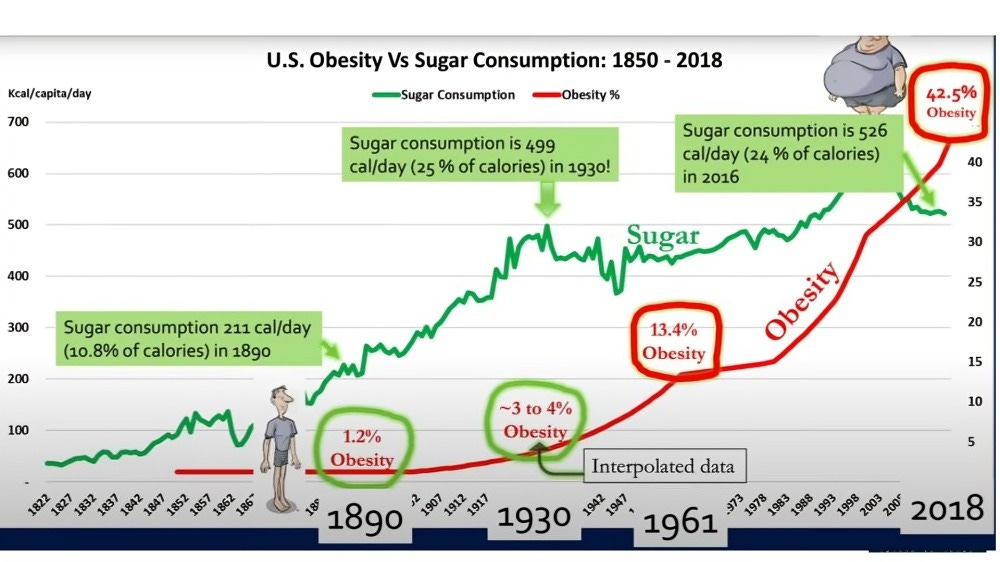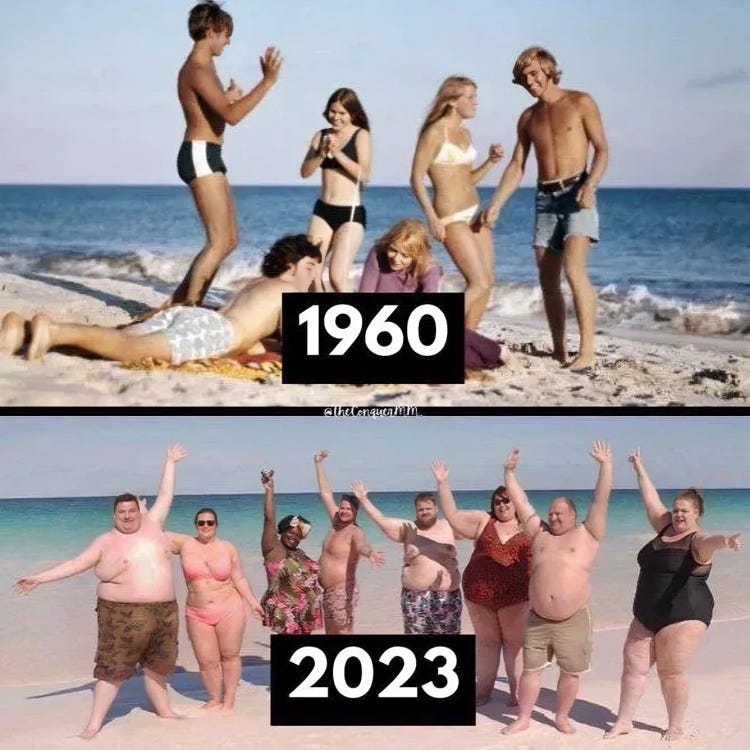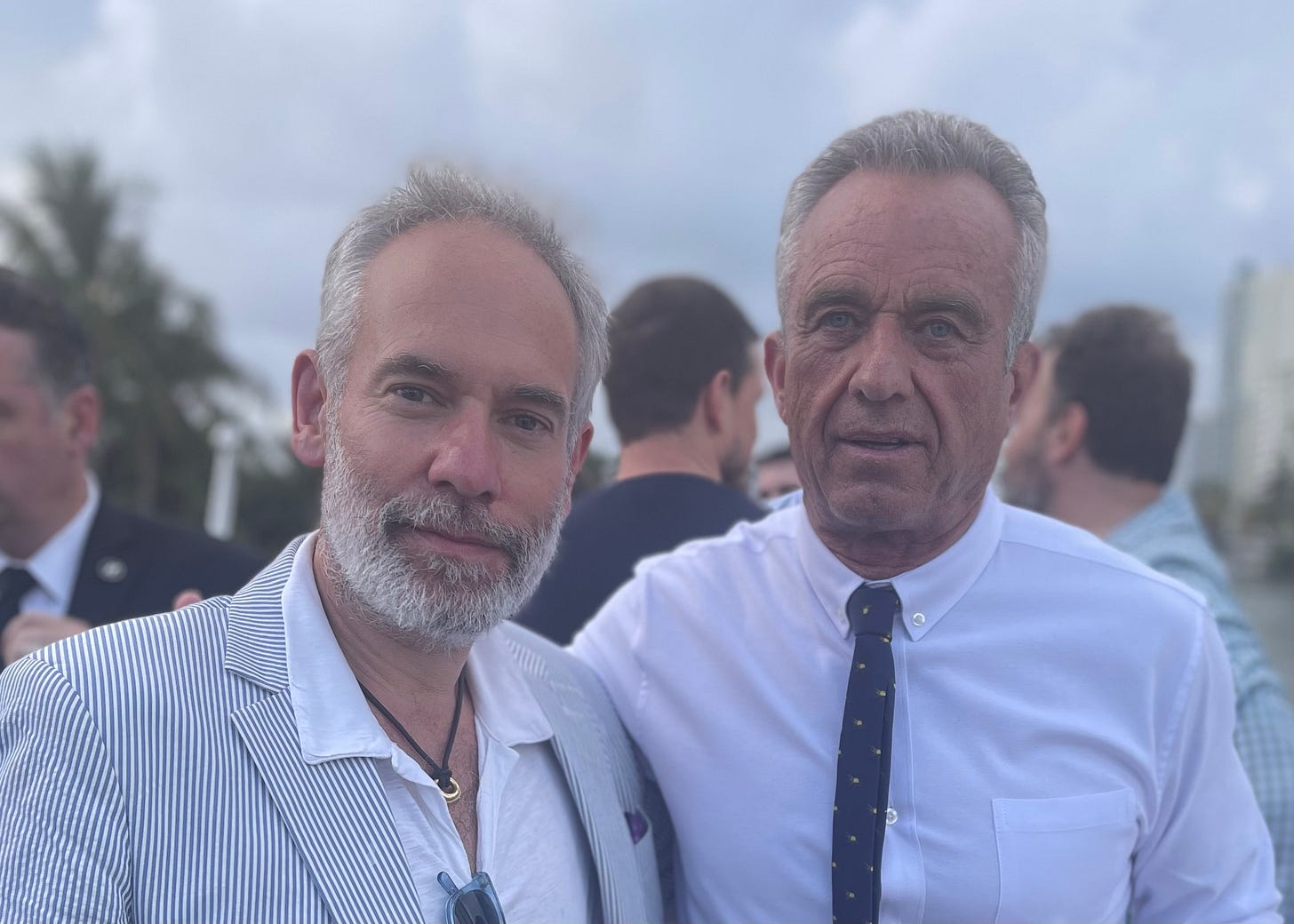You can watch a video of this article here:
Robert F. Kennedy has been grabbing headlines this week, not just for his alliance with Donald Trump, but for his criticisms of the American food industry, which he holds responsible for the epidemic of obesity and poor health.
I can’t believe what he has to say is even considered controversial, when it’s so obvious it’s true. Yet Time, The Guardian, The New York Times, and all the usual suspects have all come out to smear him.
Surely it’s clear? Processed food is bad for your health. Processed food causes obesity. Processed food is the cause of many modern illnesses. Don’t eat processed food. It is bad for you.
I’m not a doctor. Then again, I’m not an economist either. I’m just a guy who gets interested in stuff, especially systems—how they work and what their effects are.
In the noughties, I became very interested in our systems of money, largely because I couldn’t understand why houses cost so much relative to what people earn. Before long, I felt I had a good grasp of how money works. I ended up writing a film that became an internet sensation (and got horribly plagiarised in the process), several books, and umpteen articles, all making the case that if the West is to save itself and create a level playing field, we need sound money. Whether that’s based on gold or bitcoin doesn’t really matter. Money needs to be independent, rather than a tool of government.
Recently, I’ve become very interested in health - on particular, improving mine. For years, I have been unable to understand why I—and millions like me—could never keep weight off.
I have become convinced that seed oils are to health what fiat money is to the economy. It is that fundamental, in my mind. Thanks to bitcoin and gold, the fiat money narrative genie is out of the bottle. Fiat is not going to die tomorrow—it will probably take decades —but more and more people are realizing how bad it is and are taking steps to escape the system via alternative money.
The same thing needs to happen with seed oils. I find myself becoming as passionate about this as I was about money 15 years ago. Why are so many people obese? Why are so many people, who work on their health, diet, and fitness still 10 or 20 pounds heavier than they’d like to be? Why were so many people skinny in the 60s and 70s, but not now? Are people greedier now than they were then? They can’t be. We are the same human beings. Indeed, we exercise more.
What’s changed is processed food. It barely used to exist. Now it’s almost impossible to avoid. The main enabler of processed food, the thing that gives it such a long shelf life, is seed oil.
What are seed oils?
"Seed oils" is a catch-all term for the various vegetable oils that have replaced animal fats to become a mainstay of the Western diet: sunflower oil, rapeseed oil, canola oil, soybean oil, corn oil, palm oil, margarine, and so on. Anything hydrogenated is bad.
Seed oils were mostly invented for industrial purposes, but because of their price and properties, “entrepreneurial” companies, assisted by regulators, quack research, and lots of PR, gradually added them to their food products, so that seed oils have now, mostly, replaced animal fats
Just look at how they’re made. You gather seeds from plants such as soy, corn, cotton, safflower, or rapeseed; heat the seeds to extremely high temperatures, so the fatty acids oxidize; process the seeds with petroleum-based solvents such as hexane to extract the maximum amount of oil; add chemicals to remove the foul smell (this deodorization process produces harmful fatty acids); and then add more chemicals to change the colour and appearance of the oil. Not healthy.
One of their properties is that they don’t break down easily (they can thus help lengthen food’s shelf life). The problem, it seems, is that the human body can’t properly break them down either.
Okinawa in Japan became famous for its longevity, with many people living well into their 90s and 100s. Then along came Western processed food, and suddenly there is an increase in obesity, diabetes, and other modern illnesses. The once famously long-lived population is now seeing both a decline in life expectancy and an increase in health problems that were previously unknown.
When correlation equals causation
This chart shows the consumption of vegetable oil in the US since the late 19th century. We didn’t used to eat seed oils; we ate animal fats. You can see they change in diet.

Sugar often gets the blame for the rise in obesity, but if you look at current US sugar consumption, it’s not that different from what it was in the 1930s or 40s. Obesity has grown, while sugar consumption has remained broadly flat.

Now, let’s look at vegetable oil consumption and obesity rates. They correlate. And in this case, correlation is causation.
















